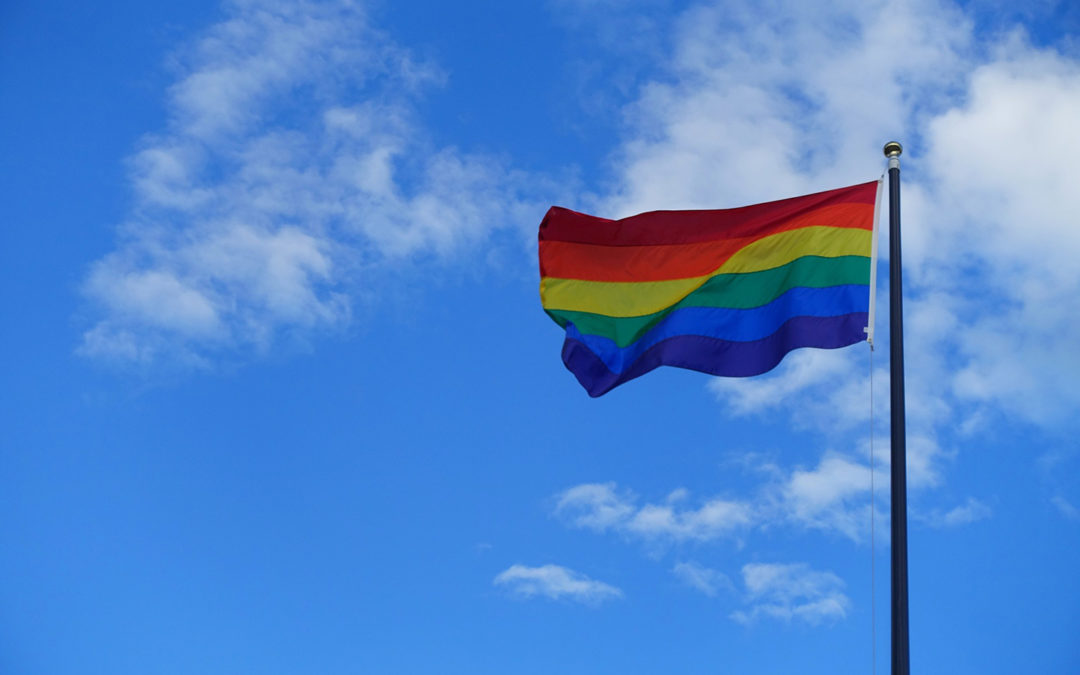
by North Shore Child & Family Guidance Center | Jul 2, 2020 | COVID-19, In The Media
As COVID-19 cases begin to surge across the country, again, questions surrounding when life will truly return to normal rise along with it. And yet, our current plight is anything but a mystery. Did we really think we had this thing beat in less than four months? Was reopening such a good idea?
As New York State’s numbers, once the epicenter of the pandemic, continue to decline the only thing that everyone (well, almost everyone) can agree on is that, no matter where you are, this is still far from over. In addition to the virus itself, according to the American Psychological Association COVID-19 aggravates existing mental health problems while potentially onsetting new symptoms– symptoms that can outlast the virus.
There is a universal trauma happening.
It’s been well documented that trauma occurs from war, oppression, natural disasters, and individual experiences. The current pandemic is no different, except it is a “mass trauma” filled with “anticipatory anxiety” on a worldwide scale. Without a cure or vaccine, society collectively wonders– will it come back? Is it safe to reopen? As more people file for unemployment and businesses continue to shut their doors, physical recovery is compounded with an eye on financial recovery. These anxieties are known as “peritraumatic”, occurring around the time of trauma in the form of intrusive thoughts.
Jessica Corea, a Licensed Mental Health Counselor, explained, “The world is experiencing a unifying trauma of loss and uncertainty. Patients are facing anxiety, depression, and financial stress all at the same time while trying to adapt to a new normal.” Even when the pandemic itself passes, it is sure to leave mass emotional destruction in its wake in the form of Post Traumatic Stress Disorder (PTSD), a classified mental disorder in the Diagnostic and Statistical Manual of Mental Disorders. Like any radical shift, the traumatic effects can go on for years.
Posttraumatic Stress Disorder can happen to anyone.
“Previous epidemic studies report high prevalence rates among people exposed to the trauma resulted from an infectious disease epidemic,” the National Center for Biotechnology Informationreported on June 5, 2020. Just like SARS, MERS, and HIV/AIDS, COVID-19 survivors are most at risk for PTSD, followed by family members who directly witnessed a loved one suffer or die, medical workers, and the general public. Further, the psychological trauma was categorized into three groups. First, directly experiencing the symptoms. Next, witnessing those who struggled. And third, experiencing a “realistic or unrealistic fear of infection, social isolation, exclusion, and stigmatization.” Essentially, like the virus itself, everyone is at risk.
“There is now a new normal that may be with us for a long time. Just as 911 impacted our lives in many ways so has this pandemic. I would certainly call this a traumatic event that has impacted everyone,” noted Elissa Smilowitz, Director of Triage and Emergency at North Shore Child & Family Guidance Center on Long Island.
Health experts across the globe are now preparing to treat patients with COVID-19 PTSD. Except the underlying issue is that PTSD symptoms don’t begin to develop until weeks or months after a traumatic event, and we are still in the middle of the pandemic itself. So, when does peritraumatic end and posttraumatic begin?
Medical News Today explains the four symptom types of PTSD are reexperiencing trauma, avoiding situations, negative changes in perception, and hyperarousal, in the forms of nightmares or flashbacks. Michigan Medicine’s Department of Psychiatry also reported, “PTSD is also associated with exaggerated activity in the brain networks associated with processing threat-detection and negative emotional responses.”
Reopening is contributing to a societal anxiety.
As cities across America roll back reopening, the response to COVID-19 is still being tackled on a state by state level. New York recently put gyms and malls on an indefinite pause while its New Jersey neighbor halted indoor dining. Meanwhile, in a reversal of events, New Jersey greeted shoppers at the local malls as Long Islanders enjoyed indoor dining at 50% capacity. In addition, New York, New Jersey, and Connecticut are now mandating a 14-day quarantine period for anyone traveling from 16 states– that’s double the amount originally reported only a week ago.
“The pandemic has really caused mental health struggles that I’ve never experienced. After postponing my wedding twice and losing two grandparents to COVID, all in less than a month, it feels strange that the world is trying to go back to normal so fast,” Long Island native Melissa Navon expressed of her personal struggles. “Nothing feels normal for me and the threat isn’t over yet. It’s difficult to explain how that feels to others who haven’t been personally affected. Many young people don’t think they need to wear masks. What they don’t understand, for some reason, is wearing a mask will protect those at risk. People like my grandparents might have survived this pandemic if everyone took the proper precautions.”
With no sense of stability or continuity mindsets are becoming increasingly fragile. After months of self-isolation reopening became a source of hope. The phases were planned, something to look forward to. Smilowitz said, “Some families are recognizing that the reopening is a good sign. However they are still anxious about whether these safety protocols will be enough.”
Focus on what you can control.
Beyond wondering how to behave there is continued concern over others behavior as well, as mask shaming trumps even political agendas. But the longer the pandemic goes on the less secure it all feels. Society is losing trust with its government and health officials, as new information spreads on a daily basis. Without a sense of guidance the internal battle to feel some sort of normalcy is lost.
Corea explained that early in the pandemic “patients were experiencing guilt for small aspects of joy” while others were suffering. Throughout, it has remained important for individuals to find balance and process fluctuating feelings. “It can shift within minutes given the current circumstances. Patients are encouraged to prioritize self-care and avoid running themselves down so they can be fully present, even if that means making a difficult decision to say no to others and setting more boundaries.”
Unlike scenarios of the past, isolation has been a key factor of the pandemic making traditional stress management unattainable. Something as simple as seeing loved ones can onset anxiety. But there are ways to cope.
“These thoughts don’t serve you. Live in the present, do not dwell. Having some control in your environment helps you feel more grounded and less anxious. Go slow, maybe just do one thing you would like to do and see how it feels,” advised Smilowitz.
How will we navigate PTSD in a post COVID world is yet to be seen, but experts across the board agree that for a large percentage of humanity it is inevitable. For a comprehensive list of ways to get ahead of COVID-19 PTSD, visit the U.S. Department of Veteran Affairs National Center For PTSD.

by North Shore Child & Family Guidance Center | Jul 2, 2020 | Blog
This summer’s 4th of July celebrations across the country will certainly look different than any year before. Amid the COVID-19 pandemic, most major firework displays have been cancelled to prevent large gatherings that could spread the virus.
While many states have elected to forgo public firework displays altogether, some have attempted to innovate. New York City’s famous Macy’s 4th of July fireworks have been “reimagined” this year, and they are taking place over the course of six nights. With an element of surprise, the fireworks displays will be unannounced and brief, thus avoiding any large gatherings that could increase exposure to COVID-19.
As Independence Day celebrations are kept small, there is a possibility that some families will attempt to have their own fireworks display. This, of course, poses quite a safety concern — especially when those handling the fireworks are not fully aware of the safety precautions necessary to mitigate risks.
Recently, news outlets have reported an uptick in illegal fireworks across New York State, and some neighborhoods have been reporting complaints about the fireworks since May. Though this year may not have the professional firework displays we normally attend, it is not worth the risk to attempt your own display. The dangers to yourself, your family and your neighborhood are too great. Instead, watch television programs of fireworks or provide your children with safer options such as glow lights for after-sunset fun.
Another issue: Many children are afraid of the loud noises from the fireworks. If there are firework displays in your neighborhood over which you have no control, keep your kids in a safe area and comfort them about their concerns. Assure them that they are safe and that their fears are understandable. If necessary, keep your child in an especially quiet part of the house or give them headphones that can block the noise.
It is also important to remember that our pets are often quite scared of fireworks as well. Be sure to keep them inside and ensure that they are in a protected, secure location to prevent injury or escape.
Please keep the safety of your family and neighborhood in mind as you decide how to celebrate the holiday. While fireworks may be an exciting spectacle, they are not worth the potential risks that could come if mishandled. The loss of some of the most popular July 4th firework displays this year can certainly be disappointing, but safety must come first. Use this as an opportunity to innovate and create new traditions for your family to celebrate the holiday! Some potential ideas may be:
- Use safer alternatives to fireworks or sparklers for children such as glow sticks or watching televised firework displays.
- Bake or cook new recipes with your children to have them be involved in a hands-on way with the traditional barbecue.
- Have a competition with various backyard games that the whole family can play (perhaps it can become an annual tournament!).
- Call or video chat with loved ones who cannot attend the celebration.
This will also set a great example for your children as they learn to make the most out of the situation and look on the bright side.
For some important tips on how to keep your family safe during fireworks celebrations, kidshealth.org provides a great list for parents to follow. For more safety tips for the summer For some important tips on how to keep your family safe during fireworks celebrations, kidshealth.org provides a great list for parents to follow. For more safety tips for the summer season, visit the National Safety Council page on summer safety.
Sources:
https://nypost.com/2020/06/29/macys-to-begin-nyc-firework-shows-tonight/
https://13wham.com/news/local/gov-cuomo-announces-new-plan-to-stop-illegal-fireworks-as-frustrations-sky-rocket
https://kidshealth.org/en/parents/fireworks.html
https://www.nsc.org/home-safety/tools-resources/seasonal-safety/summer

by North Shore Child & Family Guidance Center | Jun 25, 2020 | Blog
On June 15, 2020, the United States Supreme Court declared that the 1964 Civil Rights Act protects gay, lesbian and transgender employees from being discriminated against on the basis of sex. The decision has sent a crucial message that LGBTQ+ individuals deserve protection from discrimination in our country. And, perhaps most importantly, the ruling serves as a beacon of hope for young people struggling in the face of bullying and unaccepting loved ones because of their sexual orientation or gender identity.
As we have highlighted before on our blog, LGBTQ+ individuals are at a higher risk of mental health issues than those who do not identify as LGBTQ+. The research on young people is especially heartbreaking: the National Alliance on Mental Illness reported that high school students identifying as lesbian, gay or bisexual are nearly five times as likely to attempt suicide than their straight classmates.
As children and teenagers venture on the ever-challenging journey to figure out who they are, the typical trials and tribulations of adolescence can be made much worse by bullying or discrimination. LGBTQ+ students are more vulnerable to being bullied or harassed due to their identity. This vulnerability may motivate these young people to stay in the closet and hide their true selves, which is another burden on their mental health.
Additionally, many LGBTQ+ youth face disappointment from their families about their sexual or gender identity, and some are even kicked out of their home by unaccepting parents. Being rejected by those who they love and trust the most can have devastating effects on their mental health. Research studies have consistently supported this, as rates of depression and suicide attempts are markedly higher for LGBTQ+ youth whose families are not accepting of their sexual orientation or gender identity
In the face of rejection, the LGBTQ+ youth of today can look to the news for hope in the wake of this Supreme Court decision. Other laws have proven effective in mitigating mental health problems in LGBTQ+ youth, including anti-bullying laws in several states. While there is undoubtedly much more progress to be made, these legal decisions are a big step in the right direction.
Legislative protections are just one way progress has been made. For young people in particular, schools that had support groups for LGBTQ+ students found that these students were less likely to experience violence, feel unsafe at school or attempt suicide.
Given the influence of school and home environments on the mental health outcomes of LGBTQ+ youth, parents, family members, teachers and others should act as empathetic and supportive guides for these children and teens. Schools and parents should also take the initiative to discourage homophobic or transphobic language and jokes, to encourage their children to be accepting of their peers no matter their identity, and to continue to value diversity and inclusion.
Though some parents may struggle to accept their child’s identity, the desire to listen and learn rather than reject their child outright can make a world of difference in helping LGBTQ+ young people feel safe and respected. With this respect, they can find the worth in themselves that so many young people struggle to see, regardless of gender or sexual identity.
Sources:

by North Shore Child & Family Guidance Center | Jun 20, 2020 | Anton Media, Press Releases
North Shore Child & Family Guidance Center has two new members on its Board of Directors: Nassau County residents Jeffrey Greenblatt and Jacklyn A. Zitelli.
Jeffrey Greenblatt, who co-chaired the Guidance Center’s Trivia Night fundraiser this year, is Assistant Regulatory Counsel at PSEG Long Island. He received his J.D. from St. John’s and his B.A. from the University of Michigan.
“Long Island is a special place,” said Greenblatt, who lives in Syosset with his wife Jaclyn and three daughters, Hayley, Harper and Taylor. “It’s where I grew up, work and raise my family. I always feel good anytime I’m able to give back to the local community. That’s why it’s such an easy decision to join during tough times like these and support an agency like the Guidance Center now and in the future.”
Zitelli, counsel in Farrell Fritz’s real estate practice group, is a resident of Jericho, where she lives with her husband Michael and two children. She earned her J.D. from St. John’s University School of Law and her B.A. from Syracuse University.
“It is an honor to join such a great organization and to support its important mission,” said Zitelli. “I believe that children and families gain invaluable experiences from North Shore Child & Family Guidance Center throughout every stage of life. I’ve been appreciative of the services and programs offered through the Guidance Center for many years and am enthusiastic about now being able to directly contribute to its initiatives as a board member.”
Board President Paul Vitale is excited to welcome Greenblatt and Zitelli to the Guidance Center team. “Jeffrey did a great job getting a big crowd out for a fun experience at Trivia Night, and both his and Jacklyn’s energy and passion for our mission will be a huge asset as we navigate these challenging times.”
To learn more about North Shore Child & Family Guidance Center, Long Island’s preeminent children’s mental health agency, please call (516) 626-1971 or visit www.northshorechildguidance.org.




